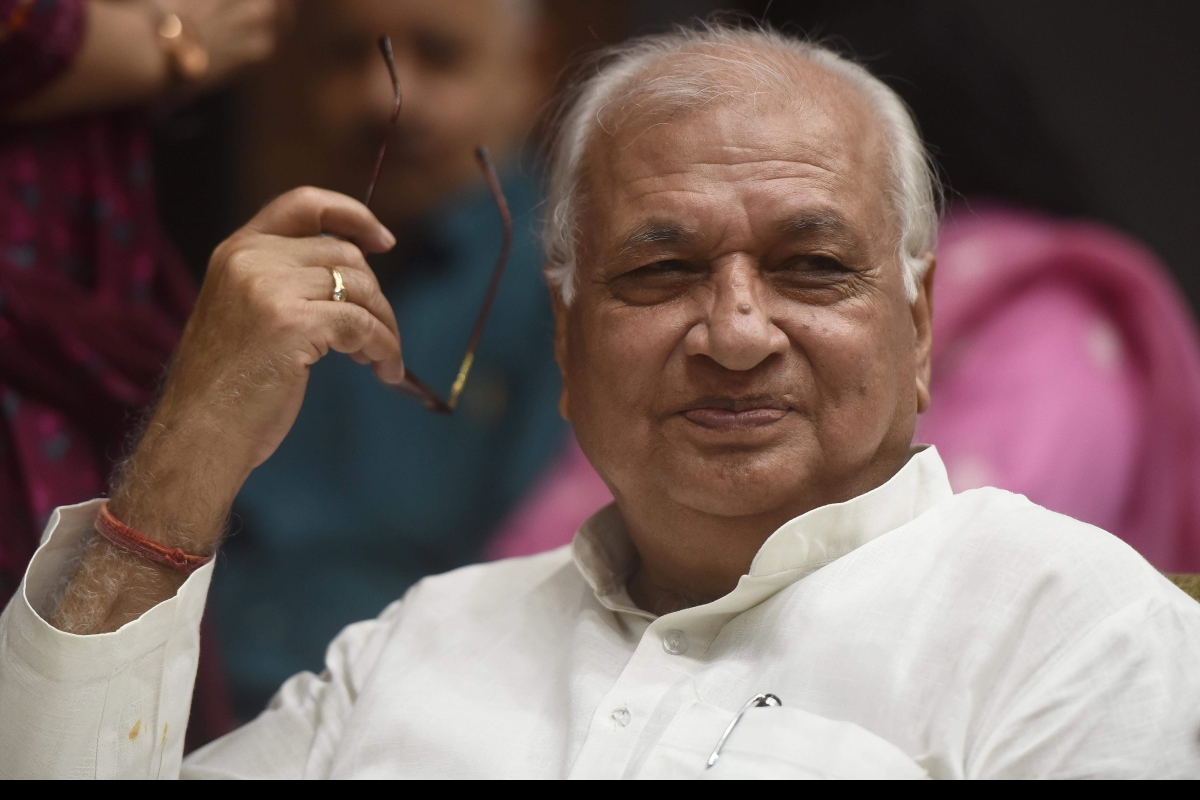
07/01/21 17:30 PM IST


What is the Constitutional Provision related to Governor’s Role in Calling an Assembly Session?
The Governor’s appointment, his powers and everything related to the office of Governor has been discussed under Article 153 to Article 162 of the Indian Constitution. One person can be appointed as Governor for two or more States.
Article 174: Says that the Governor shall from time to time summon the House or each House of the Legislature of the State to meet at such time and place as he thinks fit. It also puts on the Governer the responsibility of ensuring that the House is summoned at least once every six months.
Article 163: Although it is the Governor’s prerogative to summon the House, according to Article 163, the Governor is required to act on the “aid and advice” of the Cabinet. So when the Governor summons the House under Article 174, this is not of his or her own will but on the aid and advice of the Cabinet.
But there is an exception also
When the Chief Minister appears to have lost the majority and the legislative members of the House propose a no-confidence motion against the Chief Minister, then the Governor can decide on his or her own on summoning the House. The actions of the Governor, when using his discretionary powers can be challenged in court.
Why Governor power is similar to the President power?
Just like the President, Governor is the nominal executive of the state. Art. 162 says that executive power of State extends to matters concerning which the legislature of State has the power to make laws. Art. 166 say that executive functions shall be authenticated in the manner specified in the rules made by Governor. Clause (3) of Art. 166 provide that the Governor is authorized to make rules for the more convenient transaction of the business of the government of State and its allocation among ministers.
The executive power of governer similar to the President:
Executive Powers of the Governor
When the governor can be removed from his seat?
As per Article 155 and Article 156 of the Constitution, a Governor of a state is an appointee of the President, and he or she holds office “during the pleasure of the President”. If a Governor continues to enjoy the “pleasure of the President”, he or she can be in office for a term of five years. Because the President is bound to act on the aid and advice of the Council of Ministers under Article 74 of the Constitution, in effect it is the central government that appoints and removes the Governors. “Pleasure of the President” merely refers to this will and wish of the central government.
The term of governor's office is normally 5 years but it can be terminated earlier by:
There is no provision for impeachment, unlike with the President of India, Judges of High courts and the supreme court of India and Chief election commissioner.
Who can be the Governor of state?
Under article 153 of the Indian Constitution, there shall be a Governor for each state.
The executive power of the State shall be vested in the Governor and shall be exercised by him either directly or through officers subordinate to him by the Constitution of India (Article 154).
The Governor of a State shall be appointed by the President by warrant under his hand and seal (Article 155).
A person to be eligible for appointment as Governor should be a citizen of India and has completed the age of 35 years (Article 157).
Eligibility to become the governed of state
Article 157 and Article 158 of the Constitution of India specify eligibility requirements for the post of governor. They are as follows:
A governor must:He is appointed by the President by warrant under his hand and seal.
How Governor enjoys more discretionary power than the President power?
In certain respects both these figureheads enjoy discretionary powers which may be compared as follows:
The Discretionary Power provided are of two types-
1. CONSTITUTIONAL DISCRETIONARY POWERS - The discretions which are given in the constitution. It is given to the Governor under article 163 and not for president. These are;-
Seeking information from the state council of ministers wrt administration and legislation of the state.
2.SITUATIONAL DISCRETIONARY POWERS- The discretions which are available as per the prevailing political situations. it is available for both President and Governor. these are-
42nd Amendment act 1976 said that Ministerial advice has been made binding on the President but no such provision has been made for Governor. The constitution makes it clear that if any question arises whether a matter falls within Governor's discretion or not, the decision of Governor will be final.
Constitution has given Dual Role to Governor. He is representative of the centre as well as the constitutional head of state executive.
SC JUDGEMENT REGARDING POSITION OF GOVERNOR

17 Sep
'Dehradun and several other districts in Uttarakhand have experienced very heavy rainfall over the past few days, triggering landslides in multiple areas and causing rivers to swel
Read More
08 Sep
'The Rajasthan Coaching Centres (Control and Regulation) Bill, 2025, is a significant piece of legislation passed by the Rajasthan Assembly to regulate and oversee the state's burg
Read More
28 Aug
'Recently, the Indian Space Research Organisation (ISRO) successfully carried out its first Integrated Air Drop Test (IADT-1), a crucial milestone in the preparation for the countr
Read More